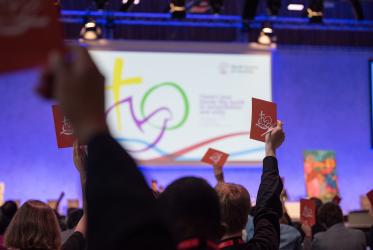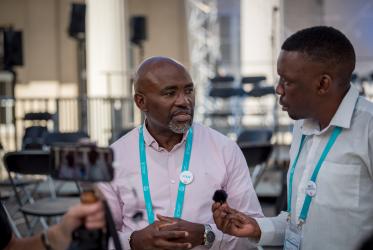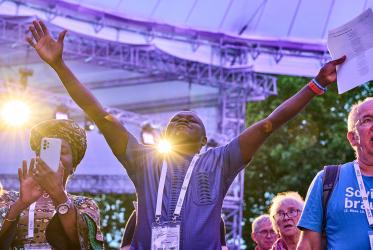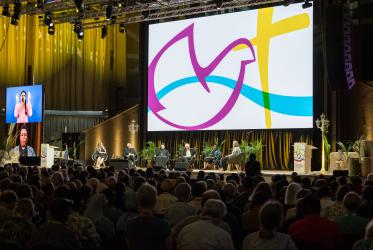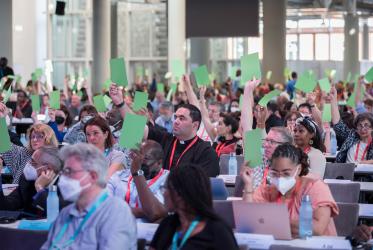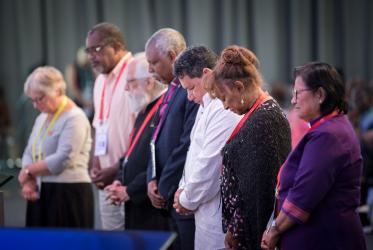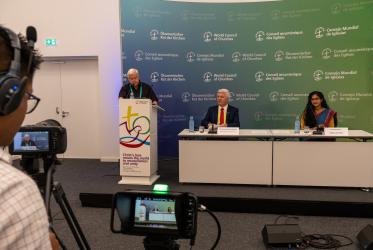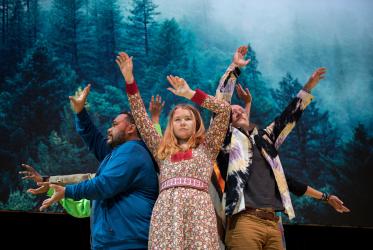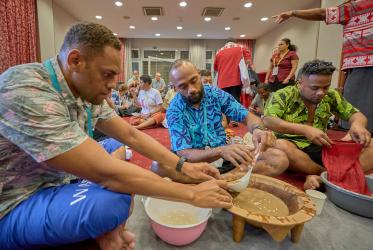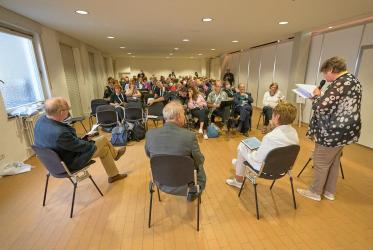Displaying 221 - 240 of 1871
09 September 2022
Dear future steward
08 September 2022
The earth is the LORD's… and the Lord is claiming it back
07 September 2022
WCC 11th Assembly elects new central committee
06 September 2022
Uppsala 1968: The times, they were a’changing
06 September 2022
WCC 11th Assembly elects eight new presidents
05 September 2022
Regional perspectives brought to the 11th Assembly
05 September 2022
Assembly participants come together as church families
04 September 2022
Christian-Jewish Dialogue: Faith is why we are here today
04 September 2022
